Storm in The Hague
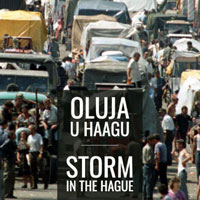
 A six-day social network campaign to commemorate civilians who perished during and in the aftermath of “Operation Storm” in the summer of 1995 will be launched on August 4th, 2021.
A six-day social network campaign to commemorate civilians who perished during and in the aftermath of “Operation Storm” in the summer of 1995 will be launched on August 4th, 2021.
The campaign, based on the video excerpts from the interactive narrative “Storm in The Hague” produced by SENSE, will be managed by SENSE – Center for Transitional Justice, Serb National Council, Documenta – Center for Dealing with the Past, and Humanitarian Law Center (Serbia). A number of other civil society organizations from the region will join.






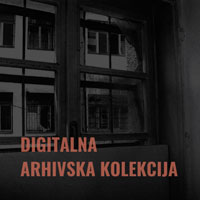

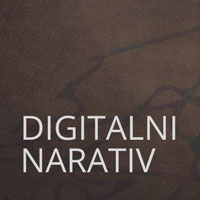
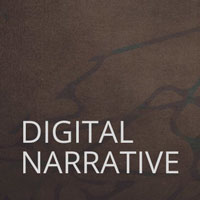
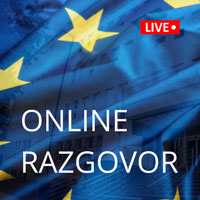
 The Humanitarian Law Center (HLC) invites you to a discussion “War Crimes Trials in the Context of Serbia’s Accession to the European Union”, during which a “Model Strategy for the Prosecuting of War Crimes Committed During and in Relation to the Armed Conflicts in the Former Yugoslavia (Period: 2021-2026)” (Model Strategy), as well as the analysis of the results achieved during the implementation of the National Strategy for War Crimes Prosecution (2016-2020) will be presented.
The Humanitarian Law Center (HLC) invites you to a discussion “War Crimes Trials in the Context of Serbia’s Accession to the European Union”, during which a “Model Strategy for the Prosecuting of War Crimes Committed During and in Relation to the Armed Conflicts in the Former Yugoslavia (Period: 2021-2026)” (Model Strategy), as well as the analysis of the results achieved during the implementation of the National Strategy for War Crimes Prosecution (2016-2020) will be presented.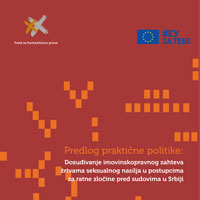
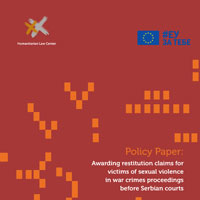 An associated action for restitution constitutes a claim for the compensation of damages, recovery of property or the annulment of a legal transaction arising from the commission of a criminal offence.
An associated action for restitution constitutes a claim for the compensation of damages, recovery of property or the annulment of a legal transaction arising from the commission of a criminal offence.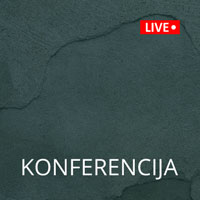
 Marking the International Day for the Elimination of Sexual Violence in Conflict, the Humanitarian Law Center (HLC) invites you to online conference “From Stigma to Justice – Sexual Violence in War “ that will take place on Tuesday, 15 June 2021 from 11:00 am via the Zoom application.
Marking the International Day for the Elimination of Sexual Violence in Conflict, the Humanitarian Law Center (HLC) invites you to online conference “From Stigma to Justice – Sexual Violence in War “ that will take place on Tuesday, 15 June 2021 from 11:00 am via the Zoom application.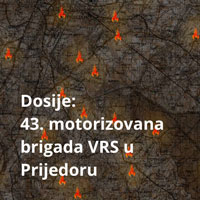
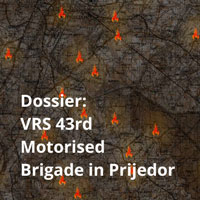 Between May and August 1992, units of the 1st Krajina Corps of the Army of the Republika Srpska (VRS), together with the police of the Republika Srpska, Territorial Defence Force (TO) units and various volunteer groups, carried out attacks on a large number villages in the municipality of Prijedor inhabited predominantly by Bosniaks and Croats.
Between May and August 1992, units of the 1st Krajina Corps of the Army of the Republika Srpska (VRS), together with the police of the Republika Srpska, Territorial Defence Force (TO) units and various volunteer groups, carried out attacks on a large number villages in the municipality of Prijedor inhabited predominantly by Bosniaks and Croats.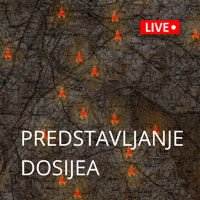
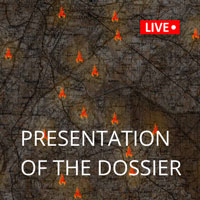 On Monday, 31 May 2021, the Humanitarian Law Center (HLC) will present its fourteenth Dossier, entitled “VRS 43rd Motorised Brigade in Prijedor”.
On Monday, 31 May 2021, the Humanitarian Law Center (HLC) will present its fourteenth Dossier, entitled “VRS 43rd Motorised Brigade in Prijedor”.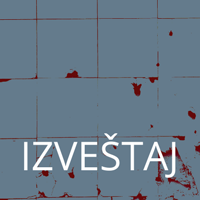
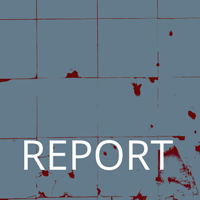 The HLC has monitored all war crimes trials conducted in the territory of Serbia in 2020, namely a total of 21 cases conducted before the War Crimes Departments of the Higher Court and/or the Court of Appeal in Belgrade.
The HLC has monitored all war crimes trials conducted in the territory of Serbia in 2020, namely a total of 21 cases conducted before the War Crimes Departments of the Higher Court and/or the Court of Appeal in Belgrade.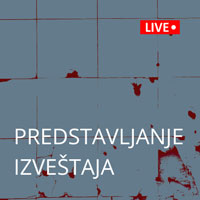
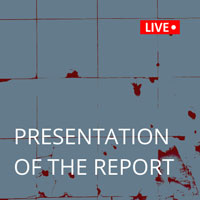 The Humanitarian Law Center (HLC) will present the Report on War Crimes Trials in Serbia during 2020 on Friday, May 14, 2021, at 11:30 AM, via the Zoom application.
The Humanitarian Law Center (HLC) will present the Report on War Crimes Trials in Serbia during 2020 on Friday, May 14, 2021, at 11:30 AM, via the Zoom application.